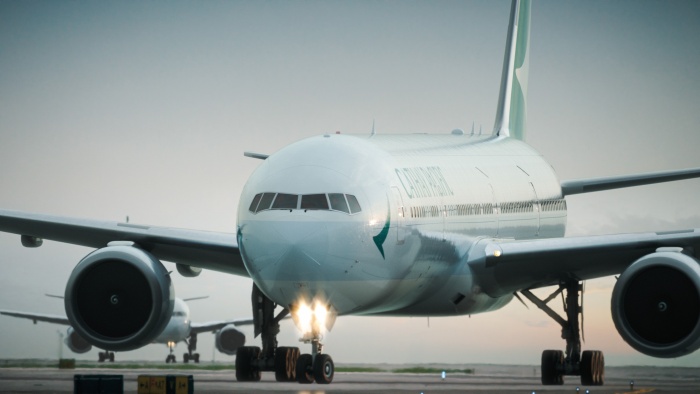
Cathay Pacific records first ever back-to-back annual loss
Cathay Pacific Group has reported its first back-to-back annual loss since the company was founded in 1946.
The Hong Kong flag-carrier blamed intense competition from low-cost Chinese carriers and higher fuel prices for the result.
Losses totalled HK$1.26bn, or £115 million, for the year to December.
In March last year the carrier posted its first annual loss in eight years, of HK$575 million.
In response, Cathay is part way through a huge three-year cost cutting programme.
ADVERTISEMENT
The loss per share for 2017 was HK32 cents, compared to a loss per share of HK15 cents in 2016.
The airline operates mainly in Asia, Europe and North America.
However, its low-cost subsidiary Cathay Dragon is facing some of its toughest competition from low-cost Chinese carriers, among others, on routes covering Hong Kong, mainland China and across south-east Asia.
“Fundamental structural changes within the airline industry continued to create a challenging operating environment for our airline businesses in 2017,” Cathay Pacific said in a statement.
“In response, we took decisive action through our transformation programme to make our businesses leaner and more agile and more effective competitors.
“Our focus in 2017 was on building the right foundations, structure and strategy to improve revenue and to better contain costs.
“Evidence of progress became apparent in the second half of the year.”
Airline losses in the second half of 2017 were lower than those in each of the two preceding half years, the company said.
The factors which affected performance were largely the same as in 2016.
Overcapacity in passenger markets led to intense competition with other airlines and continued pressure on yields on many key routes.
Fuel prices were higher, but fuel hedging losses reduced, Cathay said.
“As the year progressed we began to see positive results from our transformation programme and our business also benefited from a strong cargo business, a weaker US dollar, and improved premium class passenger demand,” added a statement.

